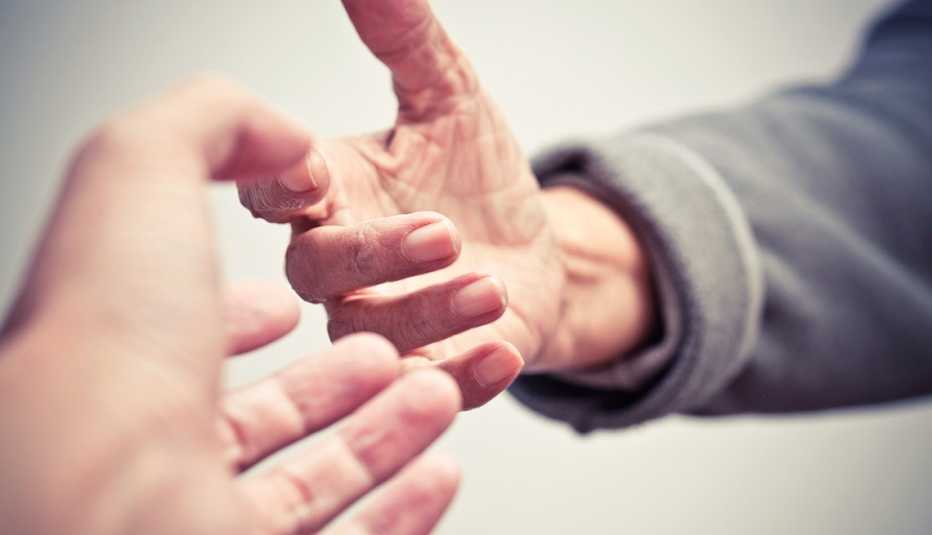Staying Fit


For Karlyn Rosen Aires, 48, of Elkins Park, Pa., offering to help care for a friend with ALS was never in question. What worried her was how much time she could devote to her friend's care given her responsibilities to her own two children, not to mention her busy home-based business.
Then there were tasks she simply couldn't take on: When her friend's balance turned erratic, for example, she realized that she could no longer drive her to doctor's appointments, fearful that she might fall.


AARP Membership— $12 for your first year when you sign up for Automatic Renewal
Get instant access to members-only products and hundreds of discounts, a free second membership, and a subscription to AARP the Magazine.
"When you're a caregiving friend sometimes you can feel like you're drowning," says Susan Brace, a clinical psychologist who specializes in caregiving issues. "But you're simply in a deep swimming hole where you haven't been before. You have to get the feel of it."
Hal Chapel, cofounder of LotsaHelpingHands, a website and mobile app that builds communities to reduce caregiver stress, finds that caregiving friends often fall into three categories: those who try to do everything, those who are put off by a certain diagnosis and those who want to help but don't know what to do.
Barry J. Jacobs, PsyD., a member of the AARP Caregiving Advisory Panel, agrees. "Some people step up and go beyond, while others retreat. Some people say they didn't know who their true friends were until they got sick."
Caregiving for a buddy also may lead to issues of intimacy, privacy and independence — all of which can test the boundaries of a friendship.
When it comes to these emotional topics, Jacobs recommends having an honest conversation with your friend about what feels acceptable and comfortable to both of you. "Let your friend know what you are and are not prepared to do," he says.
Some people, for example, may be loath to give a companion a sponge bath, while others may feel more comfortable with personal care. Brace offers a practical approach.
"Think about if the roles were reversed," she says. "Would you like your friend to help you in such a situation?"

































































More on home-family
He Inherited Old Photos and Used Them to Resurrect Family History
'Throwback Thursday' piqued the interest of a new generation
Divorce Skyrocketing Among Aging Boomers
With the most splits of any generation, older adults spur ‘gray divorce’ revolution